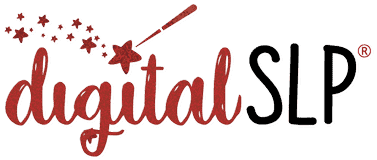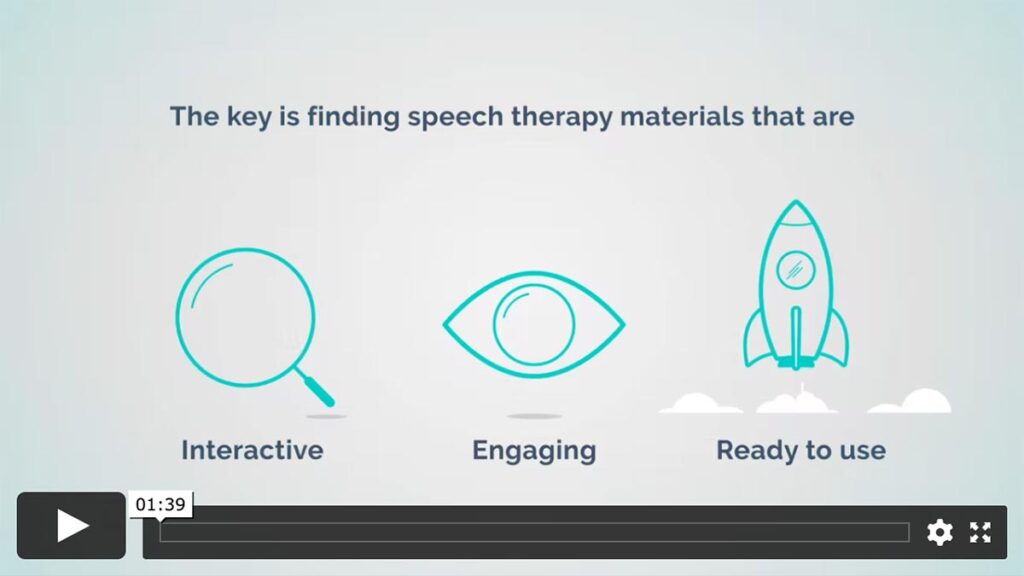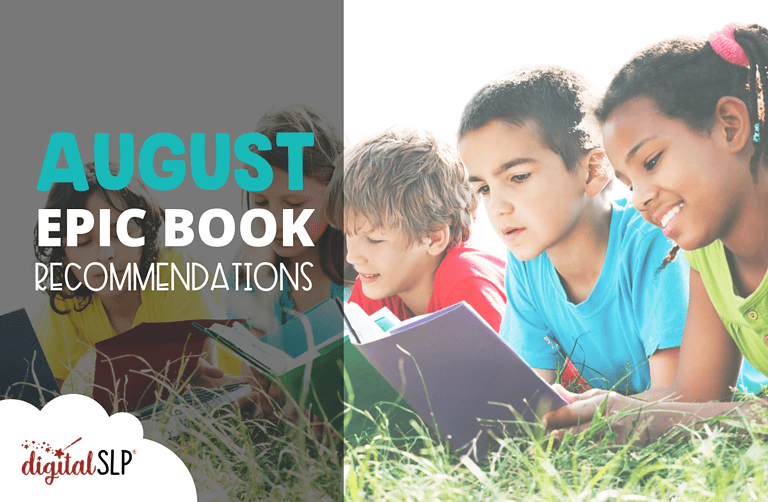This post contains affiliate links for which we may receive compensation at no additional cost to you. Click here to read our full affiliate policy.
It’s July, and signs of summer are everywhere! Fireworks and barbecues and baseball are wonderful, but nothing beats summer reading—so here’s an exuberant mix of July Epic book recommendations to help you savor the season with your students.
Spoiler alert: they don’t. But they DO cool off by dancing—really! This is just one of the many facts students will learn from this fun nonfiction book written by Etta Kaner and illustrated by Jenna Piechota. It’s all about the quirky strategies that animals use to stay cool.
(And even though lizards don’t eat ice cream, this book could still be part of your National Ice Cream Month celebration.)
Therapy ideas and skills to target:
- Compare and contrast: After learning how different creatures beat the heat, students could identify similarities and differences between human and animal strategies.
- Predicting: This book has a unique format, with a question (e.g., “Do lungfish take naps?) accompanied by a silly illustration on one page, and an answer (“Yes!”) with another fun picture on the following page. Students could read the question and use prior knowledge (combined with clues from the picture) to make a prediction about the correct answer.
- Extension: Students could follow their curiosity and do additional research about any of the fascinating facts highlighted in this selection.
You can also grab a hardcover or paperback version of this cute book on Amazon.
Since July includes Don’t Step on a Bee Day (on the 10th) and national Be Nice to Bugs Day (on the 14th), it’s a good time for students to learn more about these frequently misunderstood pollinators.
Jinny Johnson’s simple text is accessible for early elementary students, and Desiderio Sanzi’s detailed illustrations bring the words to life!
Therapy ideas and skill to target:
- Sequencing: This book covers a bee’s entire life cycle, from egg to larva to industrious worker bee—a perfect opportunity for students to practice sequencing.
- Wh-questions: As students progress through the book, they’ll encounter information that could be reviewed using wh-questions; e.g., “Who is the queen bee?” “What is the sweet sticky liquid inside flowers?” “Where does pollen come from?” “When do bees eat honey?”
- Extension: Students could read additional titles from the “What’s it Like?” series—there are books about butterflies, dragonflies, spiders, and grasshoppers. They might also enjoy grooving to this sweet “Don’t Step on a Bee” song!
This educational book is also available in paperback.
July is World Watercolor Month, and Carolyn Dee Flores’ inventive book is a beautiful way to celebrate!
Flores partnered with Texas poet laureate Dr. Carmen Tafolla to create this tale of two fish (Ashley and Mike) who discover through their friendship that the world is more magical than they ever imagined. The text is presented in both English and Spanish—and, impressively, it also rhymes in both English and Spanish!
Therapy ideas and skills to target:
- Describing: Over the course of this book, the illustrations shift from a muted palette to a vibrant burst of color. Students could discuss how the illustrations change, and older students could even make inferences about the possible reasons behind that change.
- Social communication/friendship: Students could talk about how Ashley and her new friend Mike help each other, and then make connections to their own friendships.
- Extension: It’s likely that students will want to give painting a try after reading this book! Fortunately, watercolors are fairly inexpensive, and students could even make their own.
Grab a print copy of this fun, bilingual picture book here.
This short picture book (written by Nelly Buchet and illustrated by Amy Jindra) is a kid-friendly neuroscience primer, presenting the brain as a cheerful pet that sometimes protects us in unhelpful ways, but can be trained to use better strategies.
Students who get overwhelmed by big feelings will find this book especially comforting—and it’s the perfect read for World Brain Day on July 22nd!
Therapy ideas and skills to target:
- Figurative language: The core premise of this book involves comparing the brain to a pet, so it’s a great opportunity to introduce and explore analogies, similes, metaphors, and idioms.
- Emotions: How to Train Your Pet Brain has illustrations depicting a range of facial expressions and corresponding emotions, from pride, to frustration, to sadness. Students could label the emotions and make inferences about why a person might be feeling that way.
- Extension: One of the most useful elements of this book is that it describes concrete practices students can use to train their own pet brains! Students could try out these strategies (e.g., breathing slowly and deeply) and report their experiences.
This lightheartedly illustrated book about body, mind, and emotions is also available in hardcover.
For many students, summer is synonymous with swimming! But as Jabari discovers, even the most dedicated pool enthusiasts are sometimes intimidated by the dreaded . . . high dive.
This sweet story from Gaia Cornwall explores themes of anxiety and determination with warmth and humor, and it features a gentle father character who offers nuggets of timeless wisdom.
Therapy ideas and skills to target:
- Personal narrative: Many students can connect to the experience of being nervous about trying something for the first time, so they could share their own stories of working with fear.
- Verbs: As the title indicates, verbs are an important part of this book! It could be especially effective as an introductory deep dive (pun intended) into regular verbs, with a discussion about how Jabari “will jump,” “is jumping,” “jumped,” etc.
- Extension: History is filled with stories of individuals who felt the fear and did it anyway, and this book might inspire students to do some research and learn about them!
This heartwarming book about working up the courage to face fear is also available in paperback and hardcover format.
All of these books are available for free through Epic when you sign up for an educator account, or you could request them from your local library. Enjoy!
Want to stay in the loop for new speech therapy ideas and inspirations? I have put together a free Digital SLP podcast to share insight and tips on implementing your speech therapy sessions. If you are looking for fun and interactive speech therapy materials that students and SLPs both will love, check out what the Digital SLP® membership site has to offer, or sign up for our free trial now. Alternatively, check out our TpT store.














Recent Comments